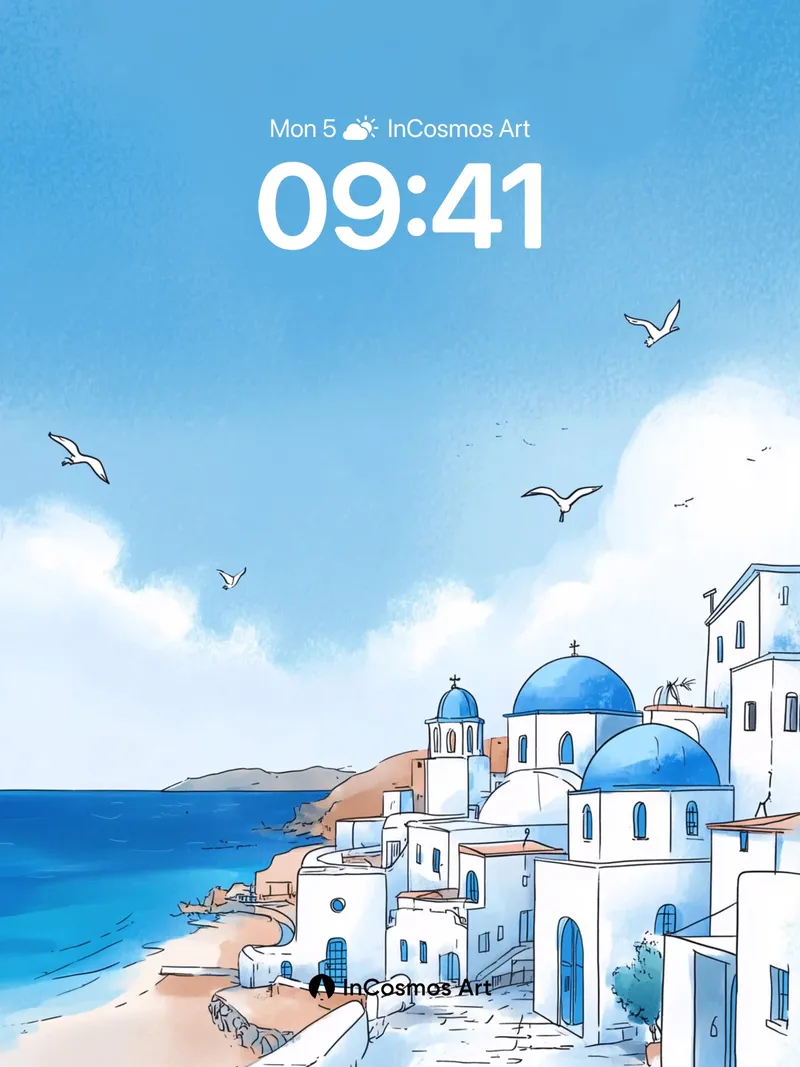When moonlight spills over stone houses on hillsides, when sea breezes pass through churches with blue domes, the Mediterranean night is not an end to silence but the beginning of another order. Light here does not merely illuminate space—it shapes daily rhythms, defines architectural posture, and directs street orientation. The white walls are not blank; they respond to sunlight. The blue domes are not ornamentation; they pay homage to the sky. In these settlements nestled between mountains and seas, the boundary between human and nature softens, life becomes embedded in landscape, and existence turns into a continuous ritual.
Language of Light
Sunlight functions as material, as grammar. It filters through narrow alleys, casting geometric shadows on walls, transforming buildings from static forms into vessels of light and shadow. People avoid sun in midday, welcome it at dusk—time flows by temperature and brightness. House orientation, window placement, porch depth—all serve the rhythm of light. This design logic emerges from deep environmental understanding, not modern urban efficiency. It reflects ecological wisdom, a humble response to climate.
Narrative of Night
As the sun sinks below the horizon, lights flicker on. Villages cease to follow daytime logic. Lamps reflect on water, boats rest in harbors, storm clouds hang low over hills, creating dramatic contrast. The nocturnal city operates under a different linguistic system—warm amber replaces cold white, sounds grow intimate, spaces are redefined. Here, no individual stands alone; darkness and glow are shared. Residents converse beneath lights, linger on steps—illumination becomes a medium of connection.
Between Mountain and Sea
Towns perched on cliffs rise like staircases, resembling organic growths. They do not conquer terrain but adapt to its contours. Waves crash against rock, boats glide through bays, salt air carries scents up to gardens atop peaks. In this geography, human-nature relations are not confrontational but symbiotic. Every window frames a picture, every balcony serves as a viewing platform. Life itself becomes art, while landscape remains its backdrop.
Politics of Color
White and blue, red and yellow—are not mere aesthetic choices but cultural symbols. White signifies purity, sanctity; blue represents sea and faith. Red roofs echo earth and fire; yellow walls radiate warmth like daylight. These color selections stem from accumulated collective memory and identity. They form a visual grammar, allowing outsiders to instantly recognize regional belonging. Colors are not random—they are texts written by history and climate together.
Poetics of Being
On this land, architecture does not display wealth or power but accommodates life. Alleys twist, steps rise steeply, courtyards remain small—but each space holds potential. People walk, talk, work, rest—movements slow and rhythmic. This is not a planned city but a lived space. Its beauty lies not in perfection but in authenticity. It invites observers to slow down, enter a state closer to essence.





















